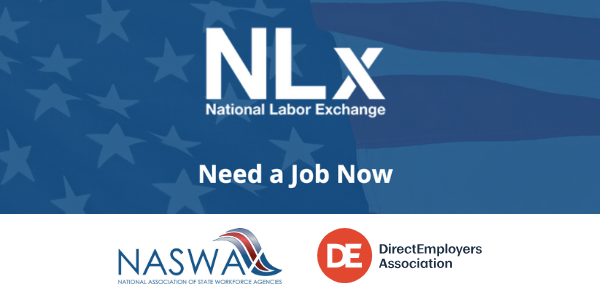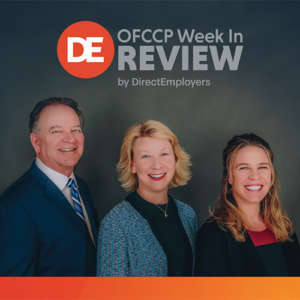 The DE OFCCP Week in Review (WIR) is a simple, fast and direct summary of relevant happenings in the OFCCP regulatory environment, authored by experts John C. Fox, Candee Chambers and Jennifer Polcer. In today’s edition, they discuss:
The DE OFCCP Week in Review (WIR) is a simple, fast and direct summary of relevant happenings in the OFCCP regulatory environment, authored by experts John C. Fox, Candee Chambers and Jennifer Polcer. In today’s edition, they discuss:
- OFCCP VEVRAA Benchmark For Hires Lowered
- OSHA Issued an Alert for Package Delivery & Manufacturing Employers
- OFCCP Supports National Autism Awareness Month
- WHD Seeks Comments on FFCRA Paid Leave Act
- DE’s Recruit Rooster Acquired RocketBuild!
- $73 Million in State Apprenticeship Expansion Grants
- $131 Million in Dislocated Workers Grants
- Unemployment Claims – Numbers Drop Slightly
- OFCCP Published Three New Directives
- Telework & Accessibility Resources
- New Updates to EEOC COVID-19 Guidance
- NLRB COVID-19 Operational Status Update
Tuesday, March 31, 2020 (Late Reporting): OFCCP VEVRAA Benchmark For Hires Lowered
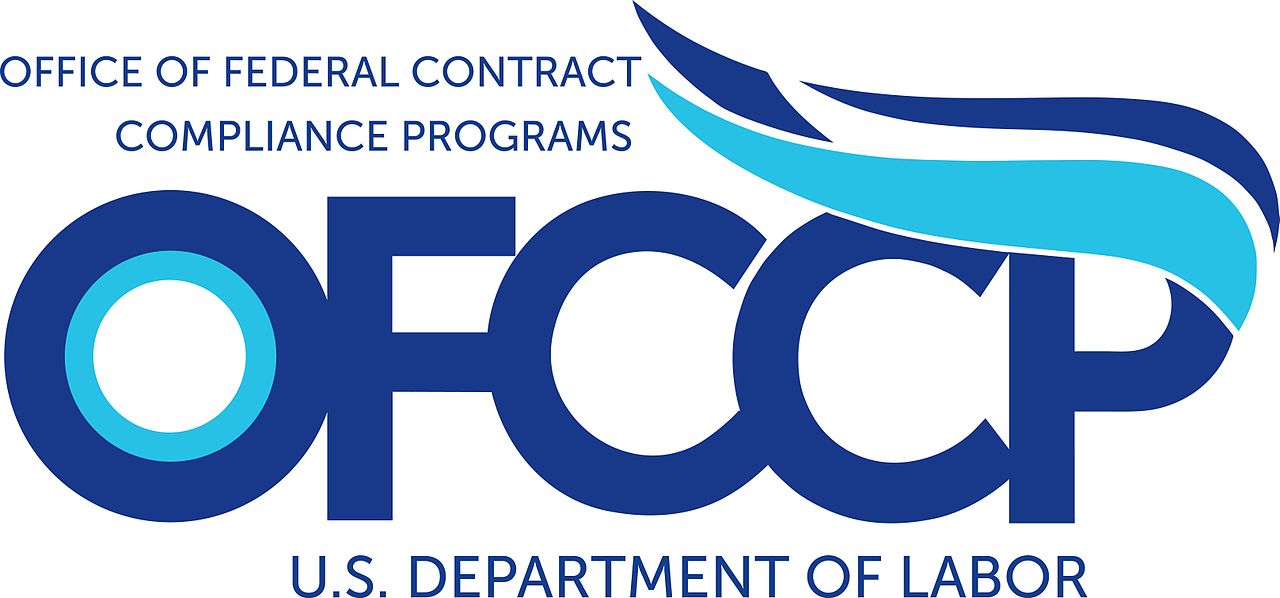 Since the inception of the VEVRAA Benchmark for Hires for covered Federal Government Contractors in 2014, for the sixth year in a row, we see the national percentage drop, now to an annual “Benchmark for Hires” of 5.7%.
Since the inception of the VEVRAA Benchmark for Hires for covered Federal Government Contractors in 2014, for the sixth year in a row, we see the national percentage drop, now to an annual “Benchmark for Hires” of 5.7%.
| Benchmark | From | To |
| 5.7 % | 03/31/2020 | — |
| 5.9 % | 03/31/2019 | 03/30/2020 |
| 6.4 % | 03/31/2018 | 03/30/2019 |
| 6.7 % | 03/31/2017 | 03/30/2018 |
| 6.9 % | 03/04/2016 | 03/30/2017 |
| 7.0 % | 04/21/2015 | 03/03/2016 |
| 7.2 % | 03/24/2014 | 04/20/2015 |
The data used to calculate the annual national percentage of veterans as a benchmark is available the first Friday in January each year.
For a refresher on the “Benchmark for Hires,” revisit an oldie but goodie blog from last spring, “How much do you really know about this percentage and its meaning?”
Monday, April 13, 2020: OSHA Issued an Alert for Package Delivery & Manufacturing Employers
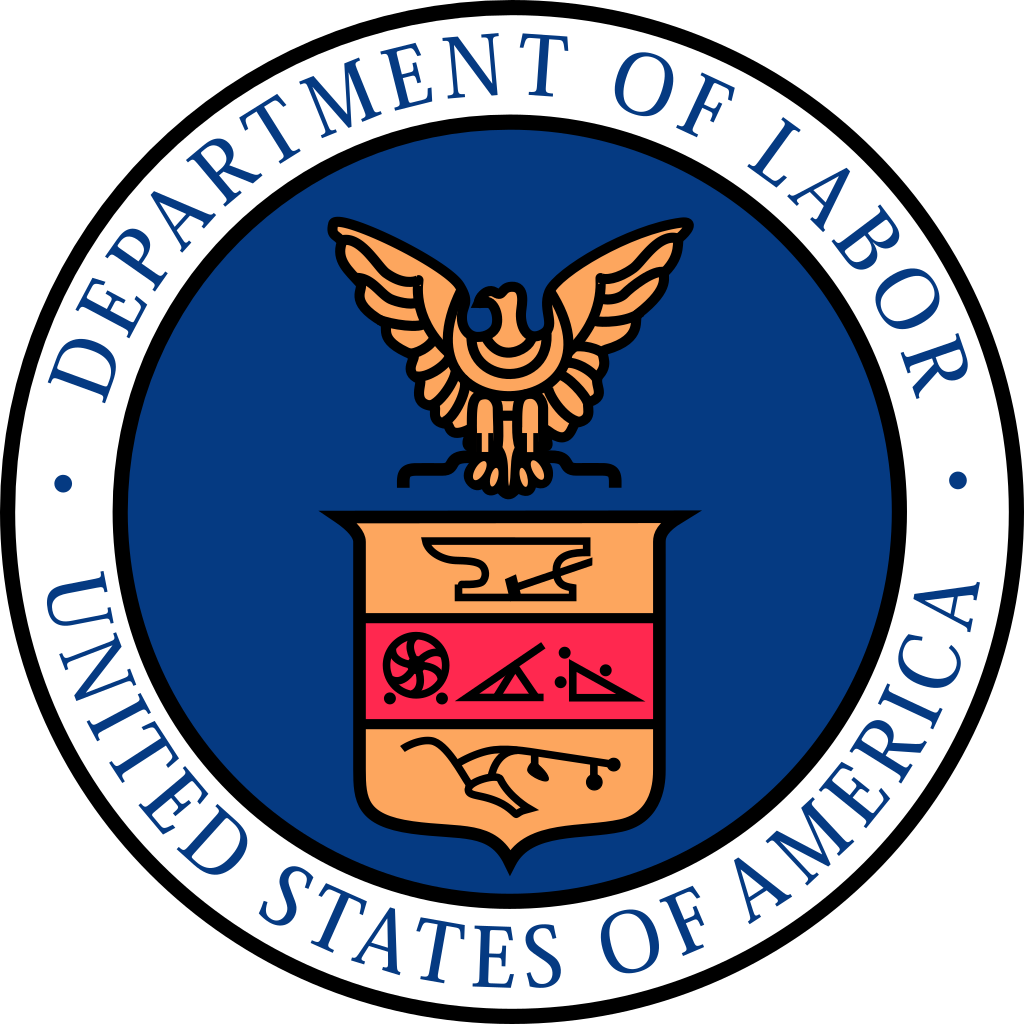 The U.S. Department of Labor’s Occupational Safety and Health Administration (OSHA) issued two separate alerts listing safety tips employers can follow to help protect package delivery workers and manufacturing workers from coronavirus exposure. It’s worth noting that many of these tips can apply to workers in all industries, as well as the general public.
The U.S. Department of Labor’s Occupational Safety and Health Administration (OSHA) issued two separate alerts listing safety tips employers can follow to help protect package delivery workers and manufacturing workers from coronavirus exposure. It’s worth noting that many of these tips can apply to workers in all industries, as well as the general public.
Safety measures include:
- Establishing flexible work hours (e.g., staggered shifts) where feasible;
- Minimizing interaction between drivers and customers by leaving deliveries at loading docks, doorsteps or other locations that do not require person-to-person exposures;
- Promoting personal hygiene. If employees do not have access to soap and water for handwashing, provide alcohol-based hand rubs containing at least 60 percent alcohol. Providing disinfectants and disposable towels so that employees can clean work surfaces, including vehicle interiors;
- Allowing workers to wear masks over their nose and mouth to prevent them from spreading the virus;
- Using Environmental Protection Agency-approved cleaning chemicals from List N or that have label claims against the coronavirus; and
- Encouraging workers to report any safety and health concerns.
Notices
Tuesday, April 14, 2020: OFCCP Supports National Autism Awareness Month
 The Office of Federal Contract Compliance Programs (OFCCP) reminded employers that not only does the Agency support the efforts of equal employment opportunities for individuals with autism (and all disabilities for that matter), but that employers should also get on board and ensure company policies and procedures support an inclusive workforce.
The Office of Federal Contract Compliance Programs (OFCCP) reminded employers that not only does the Agency support the efforts of equal employment opportunities for individuals with autism (and all disabilities for that matter), but that employers should also get on board and ensure company policies and procedures support an inclusive workforce.
Great Resources
OFCCP Best Practices in Creating an Inclusive Workforce (One of the programs showcased is from a DE Member Company, Microsoft. Microsoft has numerous inclusion programs, one of which is its Hiring Autism Program.)
- ODEP Resources for Autism and the Workplace
- JAN Accommodations and ADA Compliance: Autism Spectrum
- JAN Workplace Accommodation Toolkit
Tuesday, April 14, 2020: WHD Seeks Comments on FFCRA Paid Leave Act
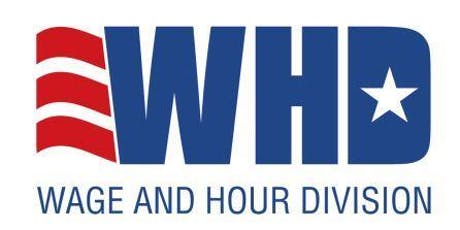
WHD is particularly interested in comments which:
- Evaluate whether the proposed collection of information is necessary for the proper performance of the functions of the Agency,
- Enhance the quality, utility, and clarity of the information to be collected;
- Evaluate the accuracy of the Agency’s estimate of the burden of the proposed collection of information, including the validity of the methodology and assumptions used;
- Minimize the burden of collecting information on those who are to respond, including using appropriately automated, electronic, mechanical, or other technological collection techniques or other forms of information technology, e.g., permitting electronic submissions of responses.
Written comments are due on or before June 15, 2020.
Tuesday, April 14, 2020: DE’s Recruit Rooster Acquired RocketBuild!
It’s official – the Roosters have taken flight! In a time of considerable uncertainty and isolation, we are ecstatic to report some GREAT news! To expand its portfolio of development offerings, Recruit Rooster, a wholly-owned subsidiary of DirectEmployers Association, has acquired custom software developer, RocketBuild. With this acquisition, Recruit Rooster will broaden the scope of development services provided to its customers, and expand its menu of technology solutions.
We encourage you to read the full details in the press release, and if you have any questions or would like to learn more about what RocketBuild can add to your recruitment marketing efforts, reach out to this powerhouse team to chat!
Wednesday, April 15, 2020: $73 Million in State Apprenticeship Expansion Grants
 The U.S. Department of Labor announced the availability of $73 million in State Apprenticeship Expansion Grants aimed at expanding apprenticeships throughout the country.
The U.S. Department of Labor announced the availability of $73 million in State Apprenticeship Expansion Grants aimed at expanding apprenticeships throughout the country.
“The State Apprenticeship Expansion Grants will fund innovations aimed at using Registered Apprenticeship Programs (RAPs) as a tool for developing the economy and building infrastructure for apprenticeships as well as baseline activities that improve states’ ability to serve, improve and strategically scale RAPs.
This funding opportunity also supports statewide RAP expansion through a two-tiered funding system that provides states with maximum flexibility to address local apprenticeship needs while enhancing the focus on employer engagement, performance, and positive outcomes for apprentices.
The first tier allows $450,000 for states and $300,000 for U.S. territories to engage in required activities to strengthen the structures supporting RAPs in their state.
The second tier awards as much as $9 million for applications that demonstrate improvements and innovations to RAPs, increase the use of the RAP model, develop infrastructure through RAPs and address policy issues that impact the use of RAPs.”
For more information on how states may apply, see Guidance Letter no.15-19.
Visit www.apprenticeship.gov to learn more about the Department’s broader efforts to connect career seekers with apprenticeship opportunities, and to expand apprenticeships into new sectors and industries.
Wednesday, April 15, 2020: $131 Million in Dislocated Workers Grants
 The U.S. Department of Labor announced the first installment of 26 Dislocated Worker Grants (DWGs) totaling $131,384,557 to address the workforce-related impacts of the coronavirus public health emergency. Funded under the Coronavirus Aid, Relief, and Economic Security (CARES) Act, a total of $345 million is allotted for DWGs to prevent, prepare for, and respond to coronavirus.
The U.S. Department of Labor announced the first installment of 26 Dislocated Worker Grants (DWGs) totaling $131,384,557 to address the workforce-related impacts of the coronavirus public health emergency. Funded under the Coronavirus Aid, Relief, and Economic Security (CARES) Act, a total of $345 million is allotted for DWGs to prevent, prepare for, and respond to coronavirus.
“Americans across the country are making sacrifices to combat the spread of coronavirus,” said Secretary of Labor Eugene Scalia. “The Dislocated Worker Grants awarded today will help some of these unemployed Americans find new jobs performing work that responds to the impact of the virus on their communities.”
Thursday, April 16, 2020: Unemployment Claims – Numbers Drop Slightly
 In the week ending April 11, 2020, the advance figure for seasonally adjusted initial unemployment claims is 5,245,000, a decrease of 1,370,000 from the previous week’s revised level of 6,615,000. To put these numbers in perspective (as we typically don’t report these figures, but in light of the pandemic and the direct effect to many of our Members, it’s now worth noting), see the same time frame for 2019 (grid below).
In the week ending April 11, 2020, the advance figure for seasonally adjusted initial unemployment claims is 5,245,000, a decrease of 1,370,000 from the previous week’s revised level of 6,615,000. To put these numbers in perspective (as we typically don’t report these figures, but in light of the pandemic and the direct effect to many of our Members, it’s now worth noting), see the same time frame for 2019 (grid below).
|
Unemployment Claims week ending of April 11, 2020 |
Unemployment Claims week ending April 4, 2020 |
4-week moving average, ending April 11, 2020 |
|
| 2020 | 5,245,000 | 6,615,000 | 5,508,500 |
| 2019 | 203,000 | 196,364 | 208,000 |
The largest increases in initial claims for the week ending April 4, 2020, were in Georgia (+256,312), Michigan (+84,219), Arizona (+43,488), Texas (+38,982), and Virginia (+34,872), while the largest decreases were in California (-139,511), Pennsylvania (-127,037), Florida (-58,599), Ohio (-48,097), and Massachusetts (-41,776).
Secretary of Labor Scalia issued a statement that highlighted, “The Department of Labor has issued all the essential guidance the States need to implement the historic unemployment benefits expansion under the CARES Act, and 29 States are now paying the $600 weekly boost in unemployment benefits under the Act.”
Hope & Help: Spread the Word
We reported earlier this month, Nonprofits DirectEmployers Association (DE) and the National Association of State Workforce Agencies (NASWA), announced the launch of NeedAJobNow.USNLx.com. The site now holds over 450,000 jobs. DE and NASWA continue to refresh and populate the site with more jobs daily.
Friday, April 17, 2020: OFCCP Published Three New Directives
 The Office of Federal Contract Compliance Programs (OFCCP) announced the publication of three new Directives, all in the arena of “efficiency and contractor support.”The Office of Federal Contract Compliance Programs (OFCCP) announced the publication of three new Directives, all in the arena of “efficiency and contractor support.”
The Office of Federal Contract Compliance Programs (OFCCP) announced the publication of three new Directives, all in the arena of “efficiency and contractor support.”The Office of Federal Contract Compliance Programs (OFCCP) announced the publication of three new Directives, all in the arena of “efficiency and contractor support.”
- Efficiency in Compliance Evaluations (DIR 2020-02)
The Scoop
OFCCP has established a series of policies and procedures to keep the number of aged cases below 15% of OFCCPs total caseload. “Aged” cases are defined as compliance evaluations (“audits”) that have not resulted in an administrative closure, conciliation agreement, or referral to the Office of the Solicitor within two years of the scheduling letter’s date.In a Nutshell
The Agency has set up a series of calendared reminders from its Compliance Management System to alert Compliance Officers every 30 days to reach out and connect with the Contractor on the open audit. Additional alerts will run up the chain of command based on the length of time the audit is open. In addition, a Contractor may request a review of an open audit to address any delay (assuming the Contractor has provided all the information OFCCP requested for the audit).Progress Report
FY18 FY19 Avg. time (days) to close a full compliance evaluation 516 399 (down 23%) Avg. time (days) to close a desk audit (no NOV*) 142 68 (down 51%) Avg. time (days) to close a desk audit (with NOV*) 229 158 (down 31%) *NOV = Notice of Violation
In the first quarter of FY 2020, OFCCP reports completing the average desk audit in 35 days, although many of those audits were Focused Reviews which are recordkeeping only audits: quick-in and quick-out.
- Pre-Referral Mediation Program (DIR 2020-03)
The Scoop
OFCCP will offer mediation in cases where it has issued a Show Cause Notice (SCN) for a discrimination violation, before referring the case to the Office of the Solicitor for enforcement. This mediation is not a substitute for the conciliation period between a Notice of Violation and Show Cause Notice.In a Nutshell
The parties have three options from which to choose a mediator (including a qualified individual proposed by the Contractor). OFCCP retains the discretion to bypass the mediation in two situations:- If OFCCP has issued an Access Show Cause Notice
- If OFCCP proceeds directly to an enforcement recommendation without issuing a SCN (this is rare and based on exceptional circumstances).
- Ombuds Service Supplement (DIR 2020-04)
The Scoop
Now that the Ombudsman is on board, this Directive serves to outline the fundamentals of the “Ombuds Service Protocol.” As Contractors may be hesitant to reach out to the Ombudsman (Marcus Stergio), the transparency of these rules of engagement may serve to ease some of this fear.In a Nutshell
This 9-part document lays out items such as a Mission Statement, Standards of Practice, Ombudsman Functions, and Records and Performance Management. A noteworthy reiteration includes the fact that “the Ombud will not conduct or participate in any compliance evaluation or compliance investigations,” but rather, is available to “Listen to, strategize with and coach contractors, subcontractors, employees of contractors or subcontractors, and OFCCP on ways to address their concerns or disagreements with each other.”
Heads Up!
DirectEmployers will host OFCCP Ombudsman Marcus Stergio in an exclusive webinar to be held in May – watch for detailed information coming soon!
Friday, April 17, 2020: Telework & Accessibility Resources

- Creating Accessible Content
- Hosting Meetings and Presentations
- Staff Training and Devices
- Resources for Employees with Disabilities
- Resources for Recruiting & Hiring Professionals
- Communicating your Commitment
Peat is also partnering with the International Association of Accessibility Professionals (IAAP) to provide a FREE webinar series on remote work and accessibility.
Friday, April 17, 2020: New Updates to EEOC COVID-19 Guidance

What’s New?
This revision expands (with 2020 additions in bold) a previous publication (related to H1N1) that focused on the ADA and Rehabilitation Act. In addition, the question and answer (“Q&A”) resource now includes Q&As on anticipated return to work situations (two new Q&As), reasonable accommodation situations (seven new Q&As), and harassment (one new Q&A). Publication dates are noted next to each Q&A for quick reference to newer information.
Friday, April 17, 2020: NLRB COVID-19 Operational Status Update
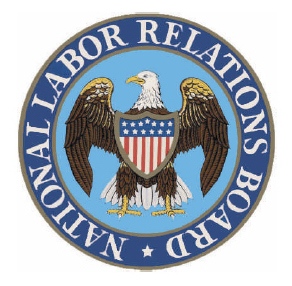
THIS COLUMN IS MEANT TO ASSIST IN A GENERAL UNDERSTANDING OF THE CURRENT LAW AND PRACTICE RELATING TO OFCCP. IT IS NOT TO BE REGARDED AS LEGAL ADVICE. COMPANIES OR INDIVIDUALS WITH PARTICULAR QUESTIONS SHOULD SEEK ADVICE OF COUNSEL.
SUBSCRIBE.
Compliance Alerts
Compliance Tips
Week In Review (WIR)
Subscribe to receive alerts, news and updates on all things related to OFCCP compliance as it applies to federal contractors.
OFCCP Compliance Text Alerts
Get OFCCP compliance alerts on your cell phone. Text the word compliance to 55678 and confirm your subscription. Provider message and data rates may apply.

